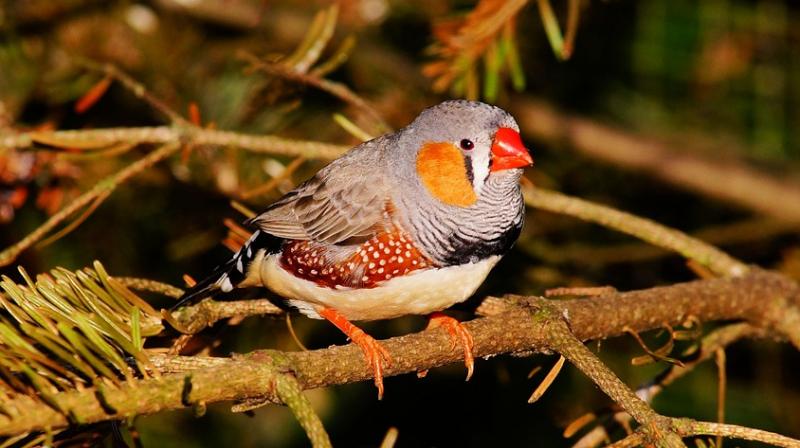Traffic noise makes birds age faster: Study
Researchers investigated the effect of traffic noise on the telomere length of offspring Zebra finches.

Washington: The next time you continuously keep honking, stop, and think of the birds!
Traffic noise may be associated with an increased rate of telomere loss in Zebra finches that have left the nest, according to a study.
Researchers investigated the effect of traffic noise on the telomere length of offspring Zebra finches. They found zebra finches that were exposed to traffic noise after they had left the nest had shorter telomeres at 120 days of age than Zebra finches that were exposed to noise until 18 days post-hatch (before they had left the nest) and whose parents were exposed to traffic noise during courtship, egg-laying, and nesting.
Corresponding author of the study, Dr Adriana Dorado-Correa, said, "Our study is a first step towards identifying the causal mechanisms that may account for differences in lifespan observed between birds living in urban or rural environments."
"Cellular ageing as a result of urban stressors is something that may not have a very visible impact, but our study indicates that although birds may seem to be adapting to life in noisy cities, they may actually be ageing faster," said co-author Dr Sue Anne Zollinger.
The researchers evaluated the impact of traffic noise exposure on a total of 263 birds by comparing telomere lengths at 21 and 120 days post-hatch under three different conditions: birds that hatched to parents that were exposed to noise, with the offspring themselves exposed until 18 days after hatching; birds that hatched to non-noise exposed parents but which were themselves exposed to noise from day 18 to 120; and controls in which neither the parents nor the chicks were exposed to noise.
The traffic noise used in the study consisted of recordings of street traffic which mimicked typical urban noise patterns.
The full findings are present in the journal Frontiers in Zoology.

